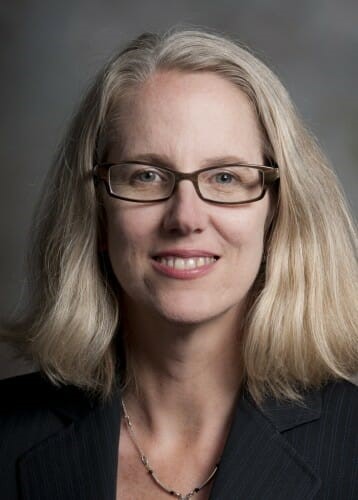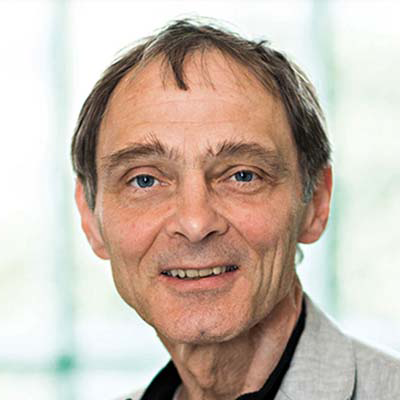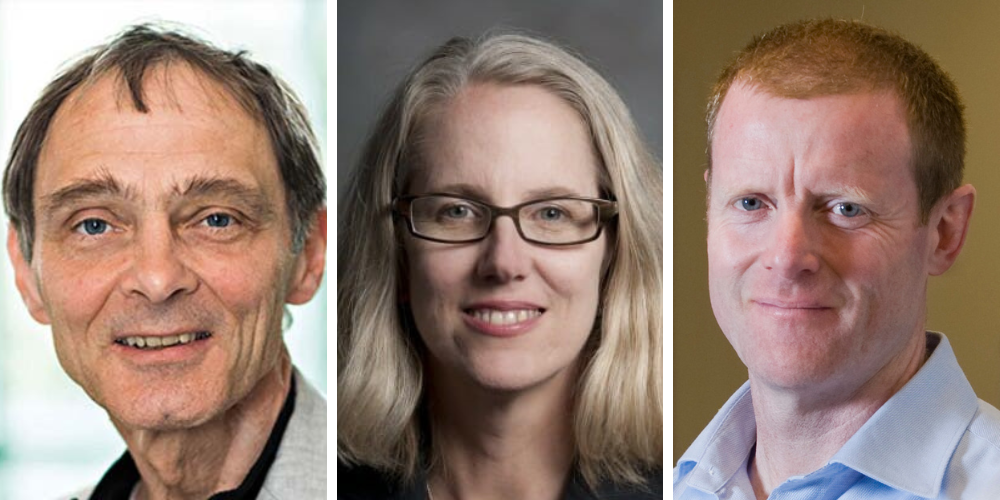Rossjohn made a Fellow of the Royal Society
Jamie RossjohnProfessor of Biochemistry and Molecular Biology at the Biomedicine Discovery Institute, Monash University, Australia, is one of 60 scientists from around the world who have recently been elected Fellows and Foreign Fellows of the Royal Society.
Jamie Rossjohn
Rossjohn, 2022 Fellow, studies vertebrate host immunity, disease, and response. His lab has used structural biology to understand how T cell receptors recognize peptides, lipids and metabolites. They found structural mechanisms of the major histocompatibility complex polymorphism that affects viral immunity, drug and food hypersensitivities, and T cell-mediated autoimmunity. Rossjohn pioneered the molecular understanding of how T cells bind to lipid-based antigens presented by the CD1 family and provided a structural basis for how vitamin B metabolites can be presented and recognized by the immune system, revealing a new class of d antigens.
Rossjohn has held research fellowships with the Australian Research Council and the National Health and Medical Research Council. He is a Fellow of the Australian Academy of Sciences, the UK and Australian Academies of Medical Sciences and the Learned Society of Wales. The work of her lab’s artist-in-residence, Erica Tandori, was featured in a 2021 ASBMB Today article on sensory science.
The Royal Society, founded in the 1660s, is the oldest scientific academy in the world, and the work of its fellows and overseas members spans many disciplines. “I am… thrilled to see so many new Fellows working in areas that have the potential to have a transformative impact on our society in this century,” Adrian Smith, President of the Royal Society, In a press release, “from new materials and energy technologies to synthetic biology and artificial intelligence”.
Gillaspy named Dean of UW
The University of Wisconsin-Madison has named Virginia Tech biochemistry professor Glenda Gillaspy the next dean of the UW College of Agricultural and Life Sciences, effective Aug. 4.

Glenda Gillaspy
Gillaspy earned an undergraduate degree from Auburn University and his Ph.D. in biochemistry from Case Western Reserve University, and later served as a National Science Foundation postdoctoral fellow at the University of California, Berkeley. She became a professor of biochemistry at Virginia Tech’s College of Agriculture and Life Sciences in 1998. After being named head of the biochemistry department in 2015, the number of graduate students doubled, and she developed a mentorship program to attract and retain new faculty.
In Gillaspy’s lab, his research program focuses on the molecular pathways that plants use to respond to the environment, an important area for developing strategies to increase crop yield and mitigate phosphate in the environment. One area of interest is a collaborative project on inositol pyrophosphate signaling molecules, which play a critical role in phosphate sensing. His lab’s outreach programs have included a plant stress exercise for local fourth graders and an authentic inquiry project with thousands of ninth graders at James Madison High School.
Gillaspy is thrilled to join the UW community, she said in an article in UW News, noting that the College of Agricultural and Life Sciences has a unique history and composition of departments and programs. “These qualities position the college to play a preeminent role in solving the complex issues facing our society in food, health and sustainability,” she said, “and in delivering essential educational programs and experiential learning to our students.”
Decker joins Valneva’s Scientific Advisory Board
Thomas Deckera member of the editorial boards of the Journal of Biological Chemistry and Molecular & Cellular Biology, has been appointed to the Scientific Advisory Board of Valneva SE, a maker of specialty vaccines, the company announced recently.

Thomas Decker
Decker is Professor of Immunobiology at the Max Perutz Laboratories at the University of Vienna. He got his doctorate. at Albert-Ludwigs University in 1986 and conducted postdoctoral research at the Fraunhofer Institute for Toxicology and Rockefeller University. After short stints in the faculties of the Fraunhofer Institute and the Karolinska Institute, he took up a position at the University of Vienna in 1993, where he was head of the department of microbiology and genetics from 2001 to 2009 and became a full professor in 2002.
Decker, an immunologist, studies signaling by a group of cytokines called interferons, which activate the JAK-STAT signaling pathway of the innate immune system to alter gene expression. For three decades, his lab has studied the wiring of the JAK-STAT signaling pathway and other interferon-responsive signal transduction cascades; the transcriptional and chromatin responses of immune cells to these signals; and how intracellular bacteria co-opt host signaling pathways.
In addition to JBC and MCP, Decker has served on the editorial boards of the Journal of Clinical Investigation and the Journal of Immunology and served as editor of Medical Microbiology and Immunology. He has been President of the European Society for Macrophage and Dendritic Cell Research since 2018.
Valneva is a multinational specializing in the development of vaccines against infectious diseases with significant unmet medical needs, including Lyme disease, COVID-19 and chikungunya.

